. Please see my
. My
Full Professor for Computer Vision
Heidelberg Collaboratory for Image Processing (HCI) &
Interdisciplinary Center for Scientific Computing (IWR),
Heidelberg University
Mathematikon (INF 205), Room 4.321
HCI / IWR, Uni Heidelberg
D-69120 Heidelberg, Germany
Tel.(office): +49 6221/54-14806
Tel.(secret.): +49 6221/54-14807
Fax: +49 6221/54-14814
Email: ommer (at) uni-heidelberg (dot) de
Open
PhD and PostDoc Positions in Computer Vision
Brief C.V.
Björn Ommer is a full professor for Scientific Computing and leads the
Computer Vision Group at Heidelberg University.
He has studied computer science together with physics as a minor subject at the University of Bonn, Germany. His diploma (~M.Sc.) thesis focused on visual grouping based on perceptual organization and compositionality.
After that he pursued his doctoral studies at ETH Zurich Switzerland in the Pattern Analysis and Machine Learning Group headed by Joachim M. Buhmann. He received his Ph.D. degree from ETH Zurich in 2007 for his dissertation "Learning the Compositional Nature of Objects for Visual Recognition" which was awarded the ETH Medal.
Thereafter, Björn held a post-doc position in the Computer Vision Group of Jitendra Malik at UC Berkeley.
He serves as an associate editor for the journal IEEE T-PAMI and previously for Pattern Recognition Letters. Björn is one of the directors of the HCI and of the IWR, part of the ELLIS unit Heidelberg, principle investigator in the research training group 1653 ("Spatio/Temporal Graphical Models and Applications in Image Analysis"), and a member of the executive board and scientific committee of the Heidelberg Graduate School HGS MathComp. He has served as Area Chair for ICCV'21, CVPR'20, and ECCV'18 and organized the 2011 DAGM Workshop on Unsolved Problems in Pattern Recognition.
Research Interests
Computer vision, machine learning, cognitive science, biomedical image analysis, and the digital humanities; esp.:
semantic scene understanding, visual synthesis and interpretable AI, deep learning & self-supervision, deep metric and representation learning, object recognition in images and videos, behavior analysis, and their interdisciplinary applications.
»»
Research pages
Publications
Main publications' list »» Publications of the Ommer lab
News:
- 2 papers accepted at NeurIPS'21 on:
- T-PAMI article accepted on improving Deep Metric Learning by divide and conquer
- Nature Machine Intelligence article on unsupervised behavior analysis & magnification (uBAM) for biomedical diagnostics
- 3 papers accepted at ICCV'21 on:
- ICML'21 paper accepted on self-distillation for deep metric learning
- 6 papers accepted at CVPR'21 on:
- Best Paper Award at CVPR'21—AI for Content Creation WS on
- High-Res Complex Scene Synthesis with Transformers
- ICRA'21 paper accepted on 3D object detection
- NeurIPS'20 ORAL on cINNs for Network-to-Network Translation
- T-PAMI publication accepted on
- Shared feature learning for Deep Metric Learning
- PLoS ONE publication on weakly supervised transliteration alignment for cuneiform sign detection
- GCPR'20 ORAL on unsupervised part learning by disentangling
- 2 papers accepted at ECCV'20 on:
- Explainable AI and semantic image manipulation
- Deep Metric Learning beyond discriminative features
- ICML'20 paper accepted on
- Generalization in Deep Metric Learning
- Best Paper Award at CVPR'20—AI for Content Creation WS on
- Interpretable Models for Visual Synthesis
- 3 papers accepted at CVPR'20 on:
- 3 papers accepted at ICCV'19
- Best paper finalist at CVPR'19
- 3 papers accepted at CVPR'19
2013
|
Arnold, M, Bell, P and Ommer, B (2013). Automated Learning of Self-Similarity and Informative Structures in Architecture. Scientific Computing & Cultural Heritage |
Monroy, A, Bell, P and Ommer, B (2013). A Morphometric Approach to Reception Analysis of Premodern Art. Scientific Computing & Cultural Heritage Technical Report (17.75 MB) Technical Report (17.75 MB) |
|
Bell, P, Schlecht, J and Ommer, B (2013). Nonverbal Communication in Medieval Illustrations Revisited by Computer Vision and Art History. Visual Resources Journal, Special Issue on Digital Art History. Taylor & Francis. 29 26--37. http://www.tandfonline.com/doi/abs/10.1080/01973762.2013.761111 |
2012
Eigenstetter, A and Ommer, B (2012). Visual Recognition using Embedded Feature Selection for Curvature Self-Similarity. Proceedings of the Conference on Advances in Neural Information Processing Systems. MIT Press. 377--385 Technical Report (3.27 MB) Technical Report (3.27 MB) |
Yarlagadda, P and Ommer, B (2012). From Meaningful Contours to Discriminative Object Shape. Proceedings of the European Conference on Computer Vision. Springer. 7572 766--779 Technical Report (4.58 MB) Technical Report (4.58 MB) |
Monroy, A, Bell, P and Ommer, B (2012). Shaping Art with Art: Morphological Analysis for Investigating Artistic Reproductions. Proceedings of the European Conference on Computer Vision, Workshop on VISART. Springer. 7583 571--580 Technical Report (7 MB) Technical Report (7 MB) |
Eigenstetter, A, Yarlagadda, P and Ommer, B (2012). Max-Margin Regularization for Reducing Accidentalness in Chamfer Matching. Proceedins of the Aian Conference on Computer Vision. Springer. 152--163 Technical Report (7.31 MB) Technical Report (7.31 MB) |
Antic, B and Ommer, B (2012). Robust Multiple-Instance Learning with Superbags. Proceedings of the Aian Conference on Computer Vision (ACCV) (Oral). Springer. 242--255 Technical Report (319.58 KB) Technical Report (319.58 KB) |
|
Yarlagadda, P, Eigenstetter, A and Ommer, B (2012). Learning Discriminative Chamfer Regularization. BMVC. Springer. 1--11. http://www.bmva.org/bmvc/2012/BMVC/paper020/paper020.pdf |
Monroy, A and Ommer, B (2012). Beyond Bounding-Boxes: Learning Object Shape by Model-driven Grouping. IEEE Transactions on Pattern Analysis and Machine Intelligence. Springer. 7574 582--595 Technical Report (1.58 MB) Technical Report (1.58 MB) |
2011
Antic, B and Ommer, B (2011). Video Parsing for Abnormality Detection. Proceedings of the IEEE International Conference on Computer Vision. IEEE. 2415--2422 Technical Report (990.21 KB) Technical Report (990.21 KB) |
Schlecht, J and Ommer, B (2011). Contour-based Object Detection. BMVC. 1--9 Technical Report (2.62 MB) Technical Report (2.62 MB) |
Schlecht, J, Carque, B and Ommer, B (2011). Detecting Gestures in Medieval Images. Proceedings of the International Conference on Image Processing. IEEE. 1309--1312 Technical Report (1.61 MB) Technical Report (1.61 MB) |
Monroy, A, Carque, B and Ommer, B (2011). Reconstructing the Drawing Process of Reproductions from Medieval Images. Proceedings of the International Conference on Image Processing. IEEE. 2974--2977. https://hciweb.iwr.uni-heidelberg.de/compvis/research/manesse/ Technical Report (2.43 MB) Technical Report (2.43 MB) |
|
Monroy, A, Kröger, T, Arnold, M and Ommer, B (2011). Parametric Object Detection for Iconographic Analysis. Scientific Computing & Cultural Heritage. http://www.academia.edu/9439693/Parametric_Object_Detection_for_Iconographic_Analysis |
Yarlagadda, P, Monroy, A, Carque, B and Ommer, B (2011). Top-down Analysis of Low-level Object Relatedness Leading to Semantic Understanding of Medieval Image Collections. Conference on Computer Vision and Image Analysis of Art II. 7869 61--69 Technical Report (11.06 MB) Technical Report (11.06 MB) |
Monroy, A, Eigenstetter, A and Ommer, B (2011). Beyond Straight Lines - Object Detection using Curvature. International Conference on Image Processing (ICIP). IEEE Technical Report (2.65 MB) Technical Report (2.65 MB) |
2010
Yarlagadda, P, Monroy, A and Ommer, B (2010). Voting by Grouping Dependent Parts. Proceedings of the European Conference on Computer Vision. Springer. 6315 197--210 Technical Report (2.99 MB) Technical Report (2.99 MB) |
Wagner, J and Ommer, B (2010). Efficiently Clustering Earth Mover's Distance. Proceedins of the Aian Conference on Computer Vision. Springer. 477--488 Technical Report (841.98 KB) Technical Report (841.98 KB) |
Yarlagadda, P, Monroy, A, Carque, B and Ommer, B (2010). Recognition and Analysis of Objects in Medieval Images. Proceedins of the Aian Conference on Computer Vision, Workshop on e-Heritage. Springer. 296--305 Technical Report (2.76 MB) Technical Report (2.76 MB) |
Ommer, B and Buhmann, J M (2010). Learning the Compositional Nature of Visual Object Categories for Recognition. IEEE Transactions on Pattern Analysis and Machine Intelligence. IEEE. 32 501--516 Technical Report (2.78 MB) Technical Report (2.78 MB) |
2009
Ommer, B and Malik, J (2009). Multi-scale Object Detection by Clustering Lines. Proceedings of the IEEE International Conference on Computer Vision. IEEE. 484--491 Technical Report (3.18 MB) Technical Report (3.18 MB) |
|
Yarlagadda, P, Monroy, A, Carque, B and Ommer, B (2009). Towards a Computer-based Understanding of Medieval Images. Scientific Computing & Cultural Heritage. Springer. 89--97. http://link.springer.com/chapter/10.1007%2F978-3-642-28021-4_10#page-1 |
|
Keränen, S V E, DePace, A, Hendriks, C L Luengo, Fowlkes, C, Arbelaez, P, Ommer, B, Brox, T, Henriquez, C, Wunderlich, Z, Eckenrode, K, Fischer, B, Hammonds, A and Celniker, S E (2009). Computational Analysis of Quantitative Changes in Gene Expression and Embryo Morphology between Species. Evolution-The Molecular Landscape |
Ommer, B, Mader, T and Buhmann, J M (2009). Seeing the Objects Behind the Dots: Recognition in Videos from a Moving Camera. International Journal of Computer Vision. Springer. 83 57--71 Technical Report (9.61 MB) Technical Report (9.61 MB) |
2007
Ommer, B and Buhmann, J M (2007). Compositional Object Recognition, Segmentation, and Tracking in Video. Proceedings of the International Workshop on Energy Minimization Methods in Computer Vision and Pattern Recognition. Springer. 4679 318--333 Technical Report (2.78 MB) Technical Report (2.78 MB) |
Sigg, C, Fischer, B, Ommer, B, Roth, V and Buhmann, J M (2007). Nonnegative CCA for Audiovisual Source Separation. International Workshop on Machine Learning for Signal Processing. IEEE. 253--258 Technical Report (1.27 MB) Technical Report (1.27 MB) |
Ommer, B and Buhmann, J M (2007). Learning the Compositional Nature of Visual Objects. Proceedings of the IEEE Conference on Computer Vision and Pattern Recognition. IEEE. 1--8 Technical Report (2.78 MB) Technical Report (2.78 MB) |
2006
Roth, V and Ommer, B (2006). Exploiting Low-level Image Segmentation for Object Recognition. Pattern Recognition, Symposium of the DAGM. Springer. 4174 11--20 Technical Report (473.84 KB) Technical Report (473.84 KB) |
Ommer, B, Sauter, M and M., B J (2006). Learning Top-Down Grouping of Compositional Hierarchies for Recognition. Proceedings of the IEEE Conference on Computer Vision and Pattern Recognition, Workshop on Perceptual Organization in Computer Vision. IEEE. 194--194 Technical Report (358.98 KB) Technical Report (358.98 KB) |
Ommer, B and Buhmann, J M (2006). Learning Compositional Categorization Models. Proceedings of the European Conference on Computer Vision. Springer. 3953 316--329 Technical Report (1.35 MB) Technical Report (1.35 MB) |
Pages
Selected Reports and Publications in Popular Science
"Das Objekt jenseits der Digitalisierung“, Deutsches Museum, 12/2018, The Future of the Digital Humanities beyond Digitization.
"Der Geist aus dem Computer“, Bild der Wissenschaft, 10/2018, covering part of our work in the digital humanities.
AI Learned How To Generate Human Appearance, Video on Two-Minute-Papers about our CVPR'18 paper on disentangling human behavior and appearance.
Painter AI Fools Art Historians, Video on Two-Minute-Papers about our ECCV'18 paper on artistic style transfer.
Improving Stroke Treatment Through Machine Learning, report on interdisciplinary project with neuroscientists from ETH Zurich.
Improving Motor Skills after Stroke, report on interdisciplinary project with neuroscientists from ETH Zurich.
TV documentary on our interdisciplinary work featured by RNF Television.
Björn Ommer, Bilder im Chaos, in: Universitas 68(810): 46-55, 2013.
Björn Ommer, From Chaos to Image - The Grammar of Patterns, in: Ruperto Carola Magazine, 03/2013.
Björn Ommer, Vom Pixel zum Bild - Wie Computer das Sehen lernen und die Forschungsarbeiten von Geistes- und Naturwissenschaftlern unterstützen können, in: Ruperto Carola Magazine, 02/2011.
Image Recognition: Teaching Computers to See, in: Young Talents -Innovative Ideas - Viable Alliances, 2011.
Automatische Bildanalyse - Blinde Computer sollen sehen lernen, in: Spiegel Online news report, 22.07.2011.
Dem Computer das Sehen beibringen, in: Rhein-Neckar-Zeitung newspaper article, 19.04.2010.
Teaching
Teaching Website @ University of Munich(current), Teaching Website @ Heidelberg University(outdated)
Links
Björn's new website @ University of Munich
Machine Vision & Learning Group: New website of the Ommer lab @ University of Munich
HCI @ Uni Heidelberg
Computer Vision Group @ UC Berkeley
Institute for Machine Learning @ ETH Zurich



